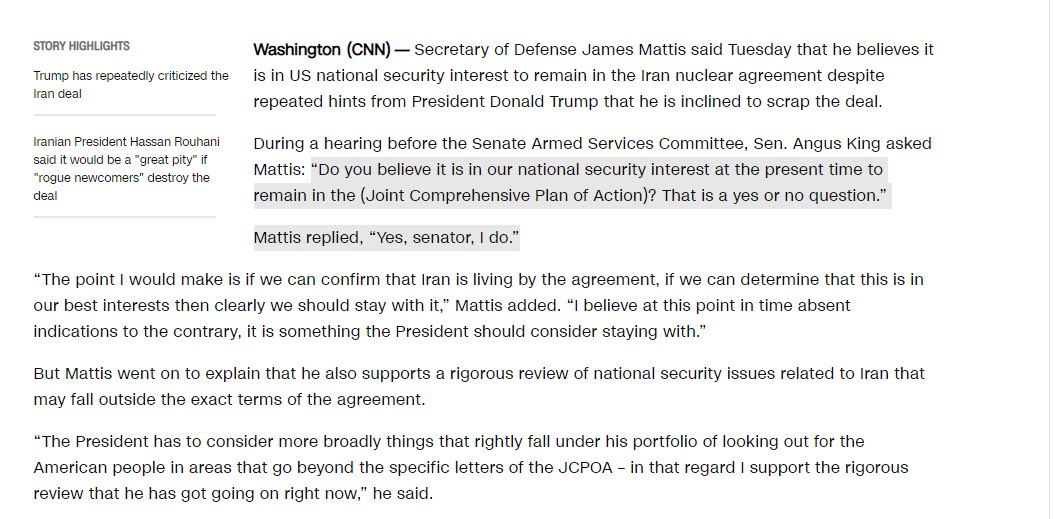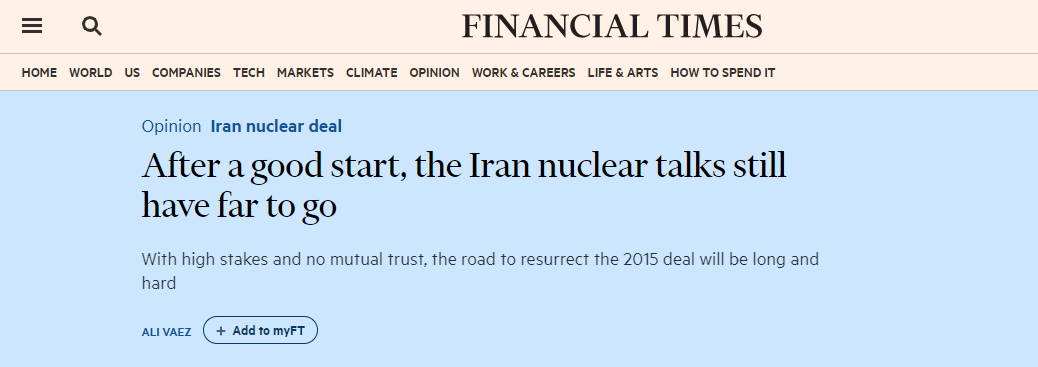
The U.S. & Iran are about to resume indirect, EU-mediated talks in Doha in an effort to break deadlock over restoring the nuclear deal.
Having the two key protagonists in one place is a necessary ingredient for diplomacy to succeed. But a breakthrough is far from assured. 🧵
Having the two key protagonists in one place is a necessary ingredient for diplomacy to succeed. But a breakthrough is far from assured. 🧵
2/ Since #ViennaTalks were paused in March, there have been efforts through various intermediaries, but mainly @enriquemora_, to find middle ground on the remaining issues of disagreement, which are bilateral US-Iran differences rather than technical matters involving wider P4+1.
3/ Those efforts failed to resolve the substantive impasse, notably around the IRGC FTO designation. And in terms of format, it's been a slow, time-consuming and inconclusive process of messages exchanged, responses awaited.
4/ Meanwhile, prolonged limbo has proven unsustainable, especially as Tehran responded to IAEA BoG censure by increasing nuclear activity & decreasing nuclear visibility, leading @rafaelmgrossi to warn of a fatal blow if Iran's program stays operating in the dark much longer.
5/ EU efforts led by @JosepBorrellF over the weekend to convene the two sides in the same place, at the same time, can make exchanges quicker and clearer. But if the political hurdles are still there, it can also mean hitting them faster rather than overcoming them.
6/ For Tehran, the economic imperative of sanctions relief still stands - as do the perceived political risks of conceding on FTO, recognizing limits to any notion of "guarantees", and internal debate over whether the JCPOA is worth it.
7/What could strengthen those who want a deal in Tehran are additional US sweeteners. But Iranian asks are still inflated, at best, unrealistic, at worst; and more importantly, the Biden admin, which is already at the end of its rope, can't give much more.
washingtonpost.com/national-secur…
washingtonpost.com/national-secur…

8/ Also, Iran is losing much more every day than it would gain with additional US concessions. The 3.5 month delay has at least cost Iran $20 bn in potential additional oil revenue. European refineries have rarely been more eager for Iranian crude.
reuters.com/article/g7-sum…
reuters.com/article/g7-sum…
9/9 All of which is to say that I wouldn't be surprised if this round is relatively brisk, with each side more inclined to hold their respective ground rather than make a substantive compromise just yet.
But happy if my skepticism is proven wrong.
But happy if my skepticism is proven wrong.
• • •
Missing some Tweet in this thread? You can try to
force a refresh








